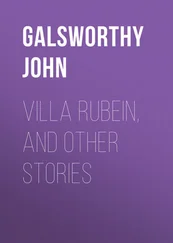Jerome Jerome - John Ingerfield, and Other Stories
Здесь есть возможность читать онлайн «Jerome Jerome - John Ingerfield, and Other Stories» — ознакомительный отрывок электронной книги совершенно бесплатно, а после прочтения отрывка купить полную версию. В некоторых случаях можно слушать аудио, скачать через торрент в формате fb2 и присутствует краткое содержание. Жанр: foreign_antique, foreign_prose, на английском языке. Описание произведения, (предисловие) а так же отзывы посетителей доступны на портале библиотеки ЛибКат.
- Название:John Ingerfield, and Other Stories
- Автор:
- Жанр:
- Год:неизвестен
- ISBN:нет данных
- Рейтинг книги:3 / 5. Голосов: 1
-
Избранное:Добавить в избранное
- Отзывы:
-
Ваша оценка:
- 60
- 1
- 2
- 3
- 4
- 5
John Ingerfield, and Other Stories: краткое содержание, описание и аннотация
Предлагаем к чтению аннотацию, описание, краткое содержание или предисловие (зависит от того, что написал сам автор книги «John Ingerfield, and Other Stories»). Если вы не нашли необходимую информацию о книге — напишите в комментариях, мы постараемся отыскать её.
John Ingerfield, and Other Stories — читать онлайн ознакомительный отрывок
Ниже представлен текст книги, разбитый по страницам. Система сохранения места последней прочитанной страницы, позволяет с удобством читать онлайн бесплатно книгу «John Ingerfield, and Other Stories», без необходимости каждый раз заново искать на чём Вы остановились. Поставьте закладку, и сможете в любой момент перейти на страницу, на которой закончили чтение.
Интервал:
Закладка:
“Fortunate that I reminded you,” says John, the smile round his lips deepening.
Will fidgets on his seat. “I’m afraid, my dear Jack,” he says, “I shall have to get you to renew it, just for a month or two, – deuced awkward thing, but I’m remarkably short of money this year. Truth is, I can’t get what’s owing to myself.”
“That’s very awkward, certainly,” replies his friend, “because I am not at all sure that I shall be able to renew it.”
Will stares at him in some alarm. “But what am I to do if I hav’n’t the money?”
John Ingerfield shrugs his shoulders.
“You don’t mean, my dear Jack, that you would put me in prison?”
“Why not? Other people have to go there who can’t pay their debts.”
Will Cathcart’s alarm grows to serious proportions. “But our friendship,” he cries, “our – ”
“My dear Will,” interrupts the other, “there are few friends I would lend three hundred pounds to and make no effort to get it back. You, certainly, are not one of them.”
“Let us make a bargain,” he continues. “Find me a wife, and on the day of my marriage I will send you back that bill with, perhaps, a couple of hundred added. If by the end of next month you have not introduced me to a lady fit to be, and willing to be, Mrs. John Ingerfield, I shall decline to renew it.”
John Ingerfield refills his own glass and hospitably pushes the bottle towards his guest – who, however, contrary to his custom, takes no notice of it, but stares hard at his shoe-buckles.
“Are you serious?” he says at length.
“Quite serious,” is the answer. “I want to marry. My wife must be a lady by birth and education. She must be of good family – of family sufficiently good, indeed, to compensate for the refinery. She must be young and beautiful and charming. I am purely a business man. I want a woman capable of conducting the social department of my life. I know of no such lady myself. I appeal to you, because you, I know, are intimate with the class among whom she must be sought.”
“There may be some difficulty in persuading a lady of the required qualifications to accept the situation,” says Cathcart, with a touch of malice.
“I want you to find one who will,” says John Ingerfield.
Early in the evening Will Cathcart takes leave of his host, and departs thoughtful and anxious; and John Ingerfield strolls contemplatively up and down his wharf, for the smell of oil and tallow has grown to be very sweet to him, and it is pleasant to watch the moonbeams shining on the piled-up casks.
Six weeks go by. On the first day of the seventh John takes Will Cathcart’s acceptance from its place in the large safe, and lays it in the smaller box beside his desk, devoted to more pressing and immediate business. Two days later Cathcart picks his way across the slimy yard, passes through the counting-house, and enters his friend’s inner sanctum, closing the door behind him.
He wears a jubilant air, and slaps the grave John on the back. “I’ve got her, Jack,” he cries. “It’s been hard work, I can tell you: sounding suspicious old dowagers, bribing confidential servants, fishing for information among friends of the family. By Jove, I shall be able to join the Duke’s staff as spy-in-chief to His Majesty’s entire forces after this!”
“What is she like?” asks John, without stopping his writing.
“Like! My dear Jack, you’ll fall over head and ears in love with her the moment you see her. A little cold, perhaps, but that will just suit you.”
“Good family?” asks John, signing and folding the letter he has finished.
“So good that I was afraid at first it would be useless thinking of her. But she’s a sensible girl, no confounded nonsense about her, and the family are poor as church mice. In fact – well, to tell the truth, we have become most excellent friends, and she told me herself frankly that she meant to marry a rich man, and didn’t much care whom.”
“That sounds hopeful,” remarks the would-be bridegroom, with his peculiar dry smile: “when shall I have the pleasure of seeing her?”
“I want you to come with me to-night to the Garden,” replies the other; “she will be in Lady Heatherington’s box, and I will introduce you.”
So that evening John Ingerfield goes to Covent Garden Theatre, with the blood running a trifle quicker in his veins, but not much, than would be the case were he going to the docks to purchase tallow – examines, covertly, the proposed article from the opposite side of the house, and approves her – is introduced to her, and, on closer inspection, approves her still more – receives an invitation to visit – visits frequently, and each time is more satisfied of the rarity, serviceableness, and quality of the article.
If all John Ingerfield requires for a wife is a beautiful social machine, surely here he has found his ideal. Anne Singleton, only daughter of that persistently unfortunate but most charming of baronets, Sir Harry Singleton (more charming, it is rumoured, outside his family circle than within it), is a stately graceful, high-bred woman. Her portrait, by Reynolds, still to be seen above the carved wainscoting of one of the old City halls, shows a wonderfully handsome and clever face, but at the same time a wonderfully cold and heartless one. It is the face of a woman half weary of, half sneering at the world. One reads in old family letters, whereof the ink is now very faded and the paper very yellow, long criticisms of this portrait. The writers complain that if the picture is at all like her she must have greatly changed since her girlhood, for they remember her then as having a laughing and winsome expression.
They say – they who knew her in after-life – that this earlier face came back to her in the end, so that the many who remembered opening their eyes and seeing her bending down over them could never recognise the portrait of the beautiful sneering lady, even when they were told whom it represented.
But at the time of John Ingerfield’s strange wooing she was the Anne Singleton of Sir Joshua’s portrait, and John Ingerfield liked her the better that she was.
He had no feeling of sentiment in the matter himself, and it simplified the case that she had none either. He offered her a plain bargain, and she accepted it. For all he knew or cared, her attitude towards this subject of marriage was the usual one assumed by women. Very young girls had their heads full of romantic ideas. It was better for her and for him that she had got rid of them.
“Ours will be a union founded on good sense,” said John Ingerfield.
“Let us hope the experiment will succeed,” said Anne Singleton.
CHAPTER II
But the experiment does not succeed. The laws of God decree that man shall purchase woman, that woman shall give herself to man, for other coin than that of good sense. Good sense is not a legal tender in the marriage mart. Men and women who enter therein with only sense in their purse have no right to complain if, on reaching home, they find they have concluded an unsatisfactory bargain.
John Ingerfield, when he asked Anne Singleton to be his wife, felt no more love for her than he felt for any of the other sumptuous household appointments he was purchasing about the same time, and made no pretence of doing so. Nor, had he done so, would she have believed him; for Anne Singleton has learned much in her twenty-two summers and winters, and knows that love is only a meteor in life’s sky, and that the true lodestar of this world is gold. Anne Singleton has had her romance and buried it deep down in her deep nature and over its grave, to keep its ghost from rising, has piled the stones of indifference and contempt, as many a woman has done before and since. Once upon a time Anne Singleton sat dreaming out a story. It was a story old as the hills – older than some of them – but to her, then, it was quite new and very wonderful. It contained all the usual stock material common to such stories: the lad and the lass, the plighted troth, the richer suitors, the angry parents, the love that was worth braving all the world for. One day into this dream there fell from the land of the waking a letter, a poor, pitiful letter: “You know I love you and only you,” it ran; “my heart will always be yours till I die. But my father threatens to stop my allowance, and, as you know, I have nothing of my own except debts. Some would call her handsome, but how can I think of her beside you? Oh, why was money ever let to come into the world to curse us?” with many other puzzling questions of a like character, and much severe condemnation of Fate and Heaven and other parties generally, and much self-commiseration.
Читать дальшеИнтервал:
Закладка:
Похожие книги на «John Ingerfield, and Other Stories»
Представляем Вашему вниманию похожие книги на «John Ingerfield, and Other Stories» списком для выбора. Мы отобрали схожую по названию и смыслу литературу в надежде предоставить читателям больше вариантов отыскать новые, интересные, ещё непрочитанные произведения.
Обсуждение, отзывы о книге «John Ingerfield, and Other Stories» и просто собственные мнения читателей. Оставьте ваши комментарии, напишите, что Вы думаете о произведении, его смысле или главных героях. Укажите что конкретно понравилось, а что нет, и почему Вы так считаете.











